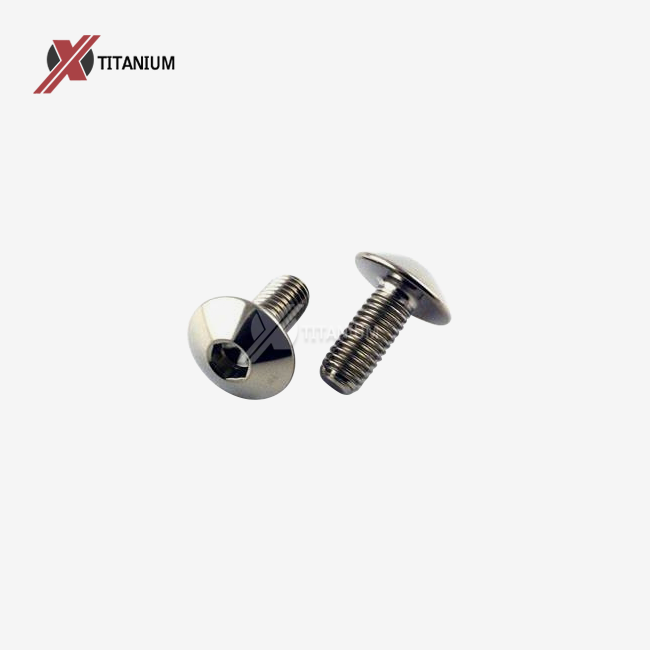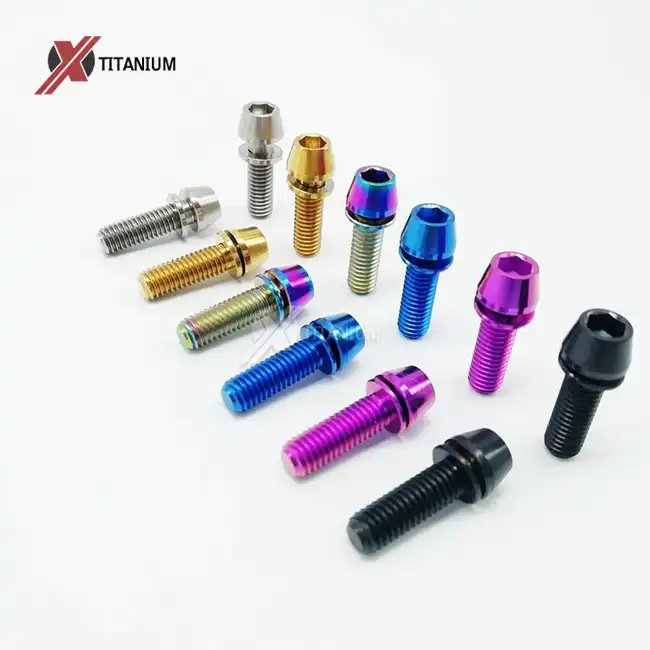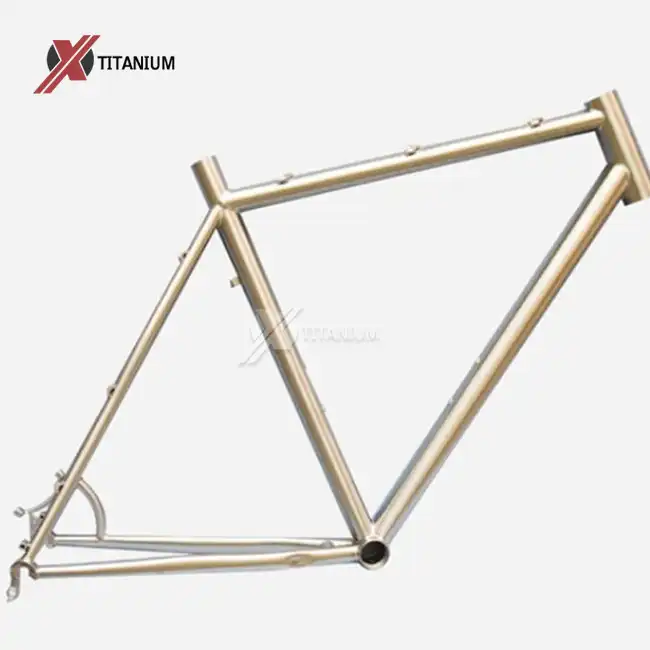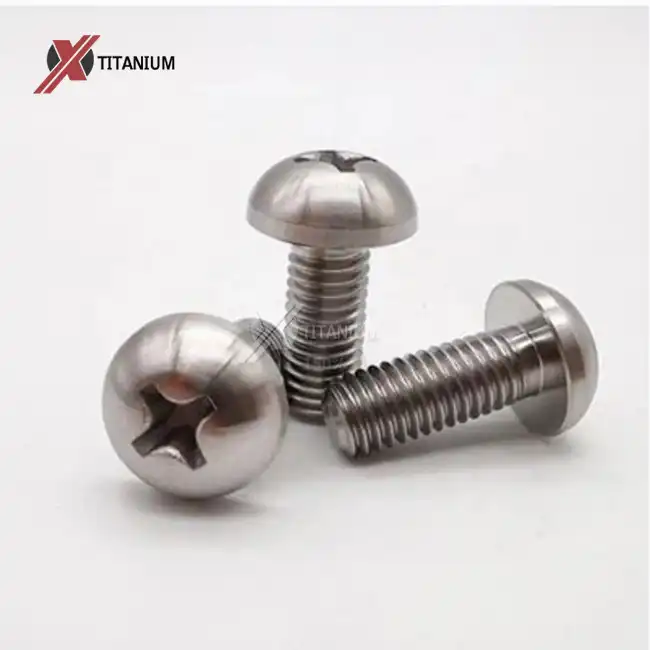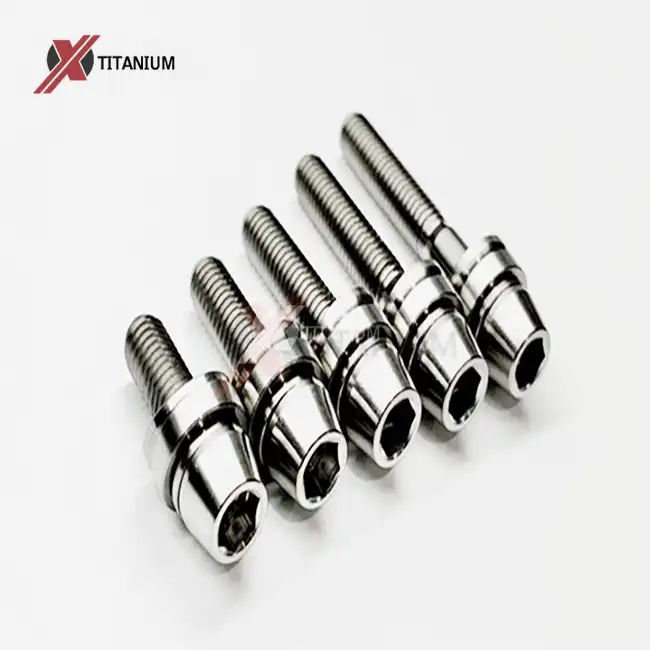The Role of Titanium Fairing Bolts in Spacecraft Design
Structural Integrity and Weight Reduction
In the realm of spacecraft design, every gram matters. Titanium fairing bolts offer an optimal solution for engineers seeking to maintain structural integrity while minimizing overall weight. These specialized fasteners boast an impressive strength-to-weight ratio, allowing spacecraft to achieve the necessary robustness without compromising on payload capacity. The use of titanium alloys, such as Grade 5 (Ti-6Al-4V), ensures that these bolts can withstand the immense forces experienced during launch and re-entry while contributing to the spacecraft's overall efficiency.
Thermal Management and Expansion
Space exploration subjects vehicles to extreme temperature fluctuations. Titanium fairing bolts excel in this environment due to their low thermal expansion coefficient. This property allows them to maintain a secure fit even as spacecraft components expand and contract in response to temperature changes. The thermal stability of titanium bolts helps prevent loosening or overtightening, which could lead to structural failures or compromise the vehicle's aerodynamics during critical phases of flight.
Corrosion Resistance in Harsh Environments
The space environment is notoriously harsh, with exposure to atomic oxygen, UV radiation, and other corrosive elements. Titanium fairing bolts offer exceptional resistance to these factors, ensuring long-term reliability throughout a mission's duration. Their naturally occurring oxide layer provides an additional barrier against chemical attack, making them ideal for use in various spacecraft subsystems, including propulsion and life support modules.
Manufacturing Processes for Space-Grade Titanium Fairing Bolts
Precision CNC Machining
The production of titanium fairing bolts for space applications demands the utmost precision. Advanced CNC machining techniques are employed to achieve the tight tolerances required for aerospace-grade components. This process ensures that each bolt meets the exacting specifications necessary for reliable performance in space. The machining process also allows for customization of bolt designs to meet specific mission requirements, such as unique thread patterns or head configurations.
Surface Treatments and Coatings
To further enhance the performance of titanium fairing bolts, various surface treatments and coatings are applied. Anodizing is a common treatment that increases surface hardness and wear resistance while also providing the option for color-coding to facilitate assembly and maintenance procedures. Other treatments, such as nitriding or PVD coatings, can be used to improve tribological properties, reducing the risk of galling or seizing in critical joints.
Quality Control and Certification
The aerospace industry imposes stringent quality control measures on all components, including titanium fairing bolts. Each bolt undergoes rigorous testing and inspection to ensure compliance with industry standards such as ASTM F136 and ISO 5832-3. Non-destructive testing methods, including ultrasonic and X-ray inspections, are utilized to detect any internal defects that could compromise the bolt's integrity. Certification processes, such as those outlined in AMS 4928, provide traceability and assurance of the material's composition and mechanical properties.
Advancements in Titanium Fairing Bolt Technology for Future Space Missions
Additive Manufacturing Opportunities
The advent of additive manufacturing technologies is opening new possibilities for titanium fairing bolt design and production. 3D printing allows for the creation of complex geometries that were previously impossible or impractical to machine. This capability enables engineers to optimize bolt designs for specific load cases, potentially reducing weight even further while maintaining or improving strength. Additive manufacturing also offers the potential for rapid prototyping and on-demand production of specialized fasteners for unique mission requirements.
Smart Fastener Integration
As spacecraft become more sophisticated, there is growing interest in integrating smart technologies into structural components. Titanium fairing bolts are prime candidates for such innovations. Researchers are exploring ways to incorporate sensors directly into these fasteners, allowing for real-time monitoring of stress, temperature, and torque. This data could provide valuable insights into spacecraft health and performance, enhancing safety and enabling predictive maintenance strategies for long-duration missions.
Novel Alloy Developments
The journey for progressed execution drives continuous investigate into novel titanium amalgams for aviation applications. Researchers are exploring compositions that offer indeed way better strength-to-weight proportions, upgraded weakness resistance, or progressed high-temperature execution. These headways might lead to the advancement of next-generation titanium fairing jolts able of withstanding the extraordinary conditions of interplanetary travel or the unforgiving situations of other firmament bodies.
Conclusion
Titanium fairing bolts represent a critical yet often overlooked component in the success of space exploration missions. Their unique combination of strength, lightweight properties, and resistance to extreme conditions makes them indispensable in modern spacecraft design. As we continue to push the boundaries of space exploration, the role of these specialized fasteners will only grow in importance. Ongoing advancements in materials science and manufacturing technologies promise to further enhance the capabilities of titanium fairing bolts, enabling more ambitious missions and expanding our reach into the cosmos.
For more information on titanium products and their applications in aerospace and other industries, please contact us at info@cltifastener.com or djy6580@aliyun.com. Our team of experts is ready to assist you with your specific titanium fastener needs and provide solutions tailored to your project requirements.
